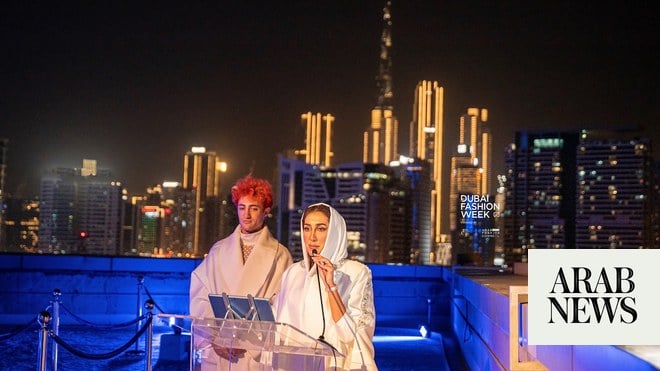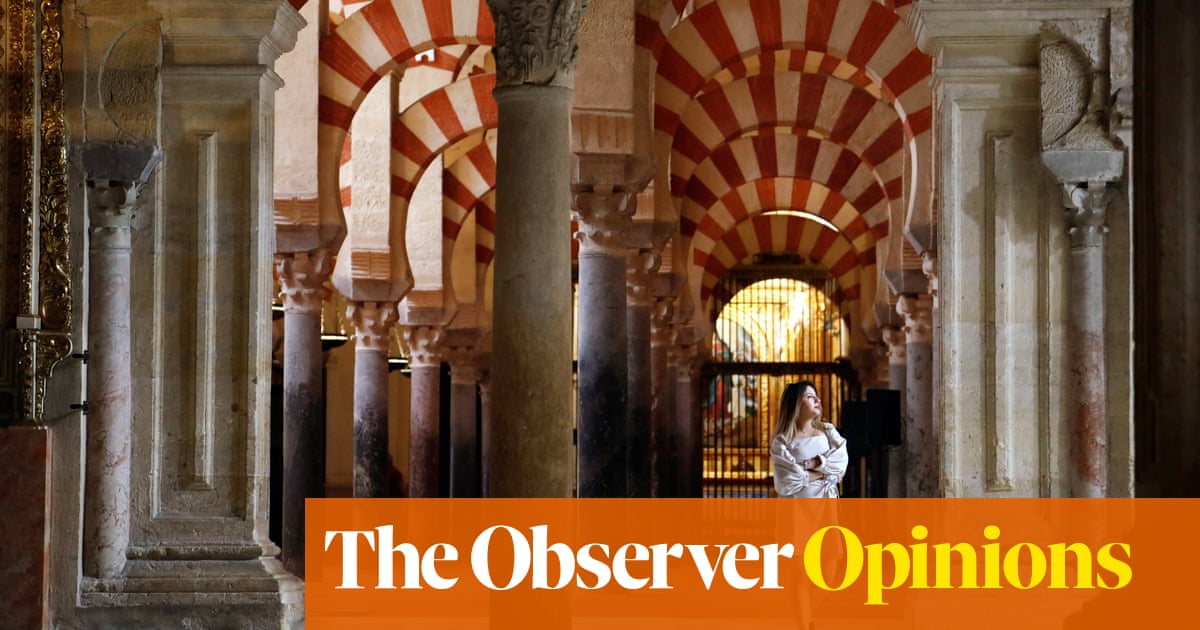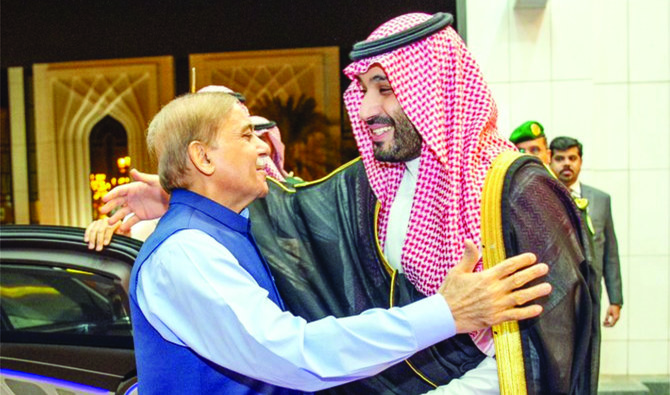
DUBAI: Iraqi designer Hozan Zangana’s “Fata Morgana” won the sixth edition of the Abwab commission, an open call for regional designers to envision an architectural or design pavilion at Dubai Design District (d3) during Dubai Design Week.
For the latest updates, follow us on Instagram @arabnews.lifestyle
Responding to the theme of the role of installations in shaping public space, “Fata Morgana” — made in close collaboration with Luuk Disveld of generous.studio and Joseph Crickett from WoodCast Designs — provides a conceptual framework for a city. Inspired by the UAE, with seven pillars representing each emirate, in-depth research contextualized its materials and production, with aesthetic nods to the desert.
“Fata Morgana is a phenomenon in the desert, a shimmering beacon in the distance,” explained Zangana. “The installation provokes that same interest.”
Using ancient adobe and rammed earth buliding techniques as a starting point, the structure from WoodCast Designs is paired with reflective copper to catch the sunlight. Organic in concept and production, “the output was a little bit out of our hands,” say the designers. “You can manipulate it – and we did – with pigment and the moulds, but every brick that came out was a surprise. These imperfections made it very exciting to work with.”
The playful installation invites curiosity, closer inspection and discovery from viewers who come together to experience a space designed for reflection and interaction.
Though considerate of COVID-19 social distancing precautions, the work highlights the human need to cross paths by arranging open-plan Zangana-designed seating and tables around a central point. “The installation, with different levels in height, can be seen as a skyline with the seven pillars in the middle and the smaller ones around them,” noted Zangana. “The center is where people connect.”
“It was an important insight that although we are separated because of coronavirus or cultural backgrounds, we have to find a way to create connections,” the designers said. With its mindful design, the installation “gives the visitor a safe and comfortable feeling. As they are facing each other, people are forced to look at each other and that is where the connection starts.”












